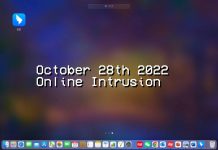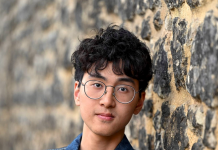Media censorship is widespread and systematic. Apart from policing the content of traditional media outlets, mainland authorities also work to block sensitive messages on social media. Data from Weiboscope, an application developed by the Journalism and Media Studies Centre (JMSC) at the University of Hong Kong (HKU) to observe censorship on Weibo, reveals that 20 to 80 in every 10,000 Weibo posts are deleted every day. On September 28, the day the Occupy Central Movement was initiated, a record 150 posts were deleted out of every 10,000 posts.
David Bandurski, editor of JMSC’s China Media Project website explains that stability is the top priority for the Chinese government as Beijing believes “stability equals prosperity”. Therefore, the government censors any news it deems as “political threats” in order to avoid social unrest.
Apart from limiting what the media can cover, authorities also channel media coverage in favour of their own messages. Taking the Occupy Movement as an example, Bandurski says: “You can cover financial impacts, so if you’re covering the markets, you’re free to report and say, ‘Hong Kong stock market fell three points today’, otherwise the frames are all the same. Foreign conspiracy, western media prejudice…You can almost hear the opium war in the background.” As for information on the social media, people may not entirely trust what they see as they fear it may be only rumours.
Bandurski thinks that censorship, the channelling of information and unverified information on social media has caused a “crisis of credibility” in the mainland media. He says that while people know they cannot trust everything they see on Weibo, they also question the truthfulness and motives behind what the government tells them. “They don’t know what they can believe,” he says.
Jerry (who does not wish to disclose his full name) came from Zhanjiang to study government and law at HKU. The 21-year-old experienced a “crisis of credibility” in Chinese official media when he followed the reporting on the Wenzhou train collision in 2011 and noticed that while there was live coverage of the accident on Weibo, the state-run media did not report it.

When he was still in Zhanjiang, Jerry usually read Zhanjiang Daily and Southern Metropolis Daily, which are relatively more open and reliable than the state-run media. However, pressure from preparing the National Higher Education Entrance Examination meant he had little time to reflect on political matters.
When Jerry first came to Hong Kong, he was amazed by the city’s media diversity. “Unlike China, Hong Kong’s media landscape is very diverse. It has some formal [newspapers] like MingPao and some tabloid-style [newspapers] like Apple Daily; some are pro-Beijing and some are pro-democracy. It also includes many international media,” says Jerry. In Hong Kong, he subscribed to Yazhou Zhoukan and Time. He also reads the South China Morning Post online and read articles on the online news and views site, House News, before it suddenly closed over the summer.






































